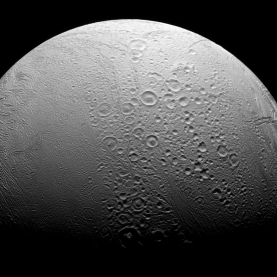Over the course of these videos, we will explore the diversity of the natural sciences, including why it snows, why metals corrode, the possibility of life on Mars, and the scientific method itself.
Whether you’re wondering about the chemistry of everyday substances, the mechanics of plate tectonics, or the physics behind the Sun’s enduring shine, these videos will provide you with insights. And if these videos pique your interest, you can further your scientific journey with our introductory science module, ‘Questions in Science’, where you will learn to develop your own scientific thinking and explore these fascinating topics in greater depth.
Can you make a hole in water?
Transcript
56.9 KB
How do you know what is alive?
Transcript
59.1 KB
Why does it snow it winter?
Transcript
56.7 KB
Could life ever have existed on Mars?
Transcript
56.8 KB
Why do metals corrode?
Transcript
58.4 KB
How similar am I to a plant?
Transcript
57.3 KB
Does the Earth move beneath your feet?
Transcript
57.2 KB
Are waves everywhere?
Transcript
56.8 KB
Can we lead a chemical-free life?
Transcript
57.7 KB
Why does the Sun shine?
Transcript
57.2 KB
What is Bad Science?
Transcript
59.0 KB
Study our introductory science module
-
S111 - Questions in Science
Learn more to access more details of S111 - Questions in ScienceThis introductory science module encompasses astronomy and planetary science, biology, chemistry, earth and environmental sciences, and physics. A series of questions, starting with “Can you make a hole in water?” and “How do you know what is alive?” demonstrates the interdisciplinarity of the sciences and teaches scientific thinking.

External link
Discover more content like this
-
Everything you need to know about snowflakes
Read now to access more details of Everything you need to know about snowflakesDid you know that no two snowflakes are alike? Professor Stephen Lewis reveals the fascinating science behind snow in this article.

-
Exploring the icy moons
Read now to access more details of Exploring the icy moonsMark Fox-Powell is a Research Fellow in AstrobiologyOU. His research focuses on the potential habitability of the deep oceans of the ice-covered moons of the outer solar system. He discussed his career path and work with Ann Grand, Lecturer in Astrobiology Education.

Study a free course
-
What are waves?
Learn more to access more details of What are waves?This free course, What are waves? explains what waves are. It describes different types of wave as well as their properties. You can listen to the song of a humpback whale and learn about the process of echolocation which is used by dolphins to locate their food. You will also conduct your own online research into how bats use echolocation to ...

-
Ethics in science?
Learn more to access more details of Ethics in science?This free course, Ethics in science? discusses how scientists have a moral and ethical responsibility to consider whether they should carry out an experiment. In this short course you will learn of the first clinical trials undertaken for scurvy and small pox and gain an understanding of how much more rigorous today’s clinical trials are. You ...

-
What is a metal?
Learn more to access more details of What is a metal?This free course, What is a metal? explores the main characteristic properties of metals and their varied use in our everyday lives. Each metal has its own personal signature and you will undertake an online experiment to identify individual metals.


Rate and Review
Rate this video
Review this video
Log into OpenLearn to leave reviews and join in the conversation.
Video reviews